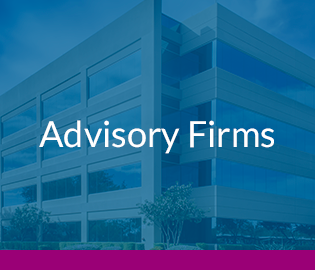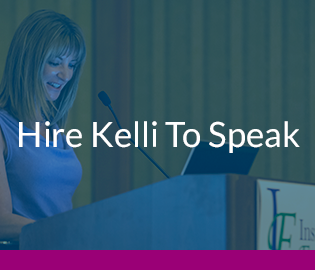
Most of the successful firms I have worked with over the years have a disciplined process in place to manage employees. This can range from setting initial job expectations to developing compensation plans and guiding overall career progression.
During volatile market conditions, these processes are especially important because they help reinforce that employees can trust that their jobs are secure. Trust is the operative word here because in volatile times employees need to feel that they’re being paid fairly and, moreover, can trust the firm and its decisions.
In response to the recent volatility in the markets, I have received inquiries from firms that feel the pressure to defend and explain compensation pay practices. I think this is largely due to the fact that most RIAs operate more like a family-owned business than a corporation, and there seems to be a feeling of entitlement on the part of employees.
Since the RIA business model is fairly straightforward, most employees understand that the largest portion of the firm’s overall revenue is based on charging a fee for assets under management. Therefore, just from knowing the firm’s fee structure, it is fairly easy for most employees to gauge how much revenue your firm is making even if you don’t share any financial information with the team.
For this reason, I recommend sharing at least high-level financial data with your team. Everyone in the firm touches the client in some capacity and everyone in the firm benefits from the investments (compensation, technology) that the owners are making. By explaining the firm’s sources of revenue and expenses, the team can understand how they impact the firm’s profitability and revenue.
In a market downturn, firm owners tend to make employee payroll the top priority by not paying themselves a fair salary for the job they are doing for the firm. Far too many owners pay themselves from the profit that is left over. Compare this to the pay practices of corporations where the opposite strategy prevails. In down markets, corporate executives still get paid huge compensation packages, while employees’ compensation remains flat or, even worse, their jobs get eliminated. Without a well thought-out human capital plan and compensation philosophy, firms are hard-pressed to explain and defend their pay practices.
One key guiding principle in a human capital plan or compensation philosophy is to ensure that you tie compensation decisions to the overall performance of the firm. A compensation philosophy is simply a formal statement documenting the firm’s position about employee compensation. It explains the “why” behind employee pay and creates a framework for consistency.
We have experienced a solid run up in the markets over the past 10 years so many of your employees may have entered the job market during the last decade and have never experienced an economic downturn. Therefore, creating this alignment between the firm’s financial performance and how this impacts its ability to pay employees is crucial.
Another topic firm owners and employees ask me about are what factors determine compensation? The answer lies in utilizing industry benchmark data and then determining the most important drivers of performance for the firm. I suggest the following components be considered when determining the right compensation for the employee in the role: experience and time in the role; specialized skills set, credentials, designations; performance level or rating; geographical location and cost of wages; premium for certain roles (lead advisor); and value of the position to the firm.
I find that trust is the part of the employment equation that matters the most. I hear from employees that they place a high level of trust in the firm owners to do the right thing for clients and for them as employees. However, when specifically asked about their compensation and career track their trust level declines and they definitely want more clarity and structure.
Unfortunately, trust starts to break down as firms grow in headcount. And without clearly articulated talent management programs in place, trust erodes quickly. I have seen far too many firm owners try to manage every employee in the firm. Not only do most of them lack the necessary people management skills, but they also lack the management structure to provide clear communication. This can lead to a lack of confidence and trust that is so needed to motivate employees.
For broader context, a recent global survey of Ernst & Young (“Trust in the Workplace“) showed that less than half of the respondents have “a great deal of trust” in their current employers, boss, or team/colleagues. Respondents in the U.S. are to be less likely to place a “great deal of trust” in employers, bosses, or teams. Moreover, there was a notable percentage point difference in placing a “great deal of trust” in their boss (50%) compared with their employer (38%), the largest gap among all eight countries.
What causes a lack of trust? According to the study, the top five factors leading to respondents’ lack of trust in their employers were: unfair employee compensation, unequal opportunity for pay and promotion, lack of leadership, high employee turnover, and a work environment not conducive to collaboration.
Conversely, what factors promote trust? The leading aspects that were “very important” to a majority of global respondents in determining the level of trust to place in their employers were: delivers on promises (67%); provides job security (64%); provides fair compensation and good benefits (63%); and communicates openly/transparently (59%).
There was a tie for fifth place between “provides equal opportunity for pay and promotion for all people regardless of differences” and “operates ethically” (both 57%). Also noteworthy for the U.S., Gen Z values “equal opportunity for pay and promotion,” and “opportunities to learn and advance” as leading factors in trusting a future employer.
When you work with people you trust, more can get done. Organizational trust is derived from alignment – having the organization’s systems, structures and rewards aligned with one consistent objective. When everything is aligned correctly, trust grows. When these various elements are misaligned, trust is reduced or dissipated.
Trust is something that has always been a huge motivator for me. As I look back on my career, it was the managers that took me under their wings and provided clear expectations and feedback that nurtured that high trust environment which allowed me to do my best work.
Now more than ever in these turbulent financial markets it’s important to have a human capital program and clearly communicate it to your employees. Just like the best practice of increasing communication to your clients during market turmoil the same policy holds true in communicating to your employees. Remember, your business model is built on client retention, which in turn means it is built on employee retention as well.
Kelli Cruz is a Financial Planning columnist and the founder of Cruz Consulting Group in San Francisco. Follow her on Twitter at @KelliCruzSF.






